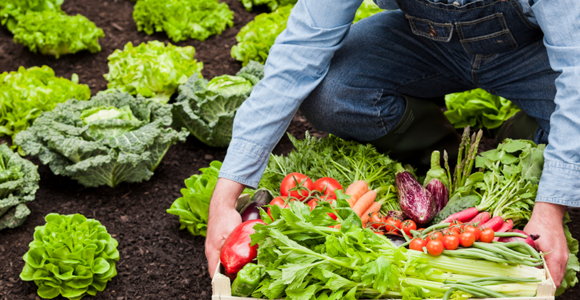Recent headlines regarding organic food versus conventionally-grown varieties have created controversy, and not for what the study reveals, but for what it leaves out.
Stanford's Center for Health Policy reviewed 240 studies from around the world related to the comparison of levels of nutrients and contaminants, as well as the effects that eating organic may have on an individual's health. The results of this large-scale review found that organic food is not more nutritious than conventionally-produced food.
The problem with this study--and the subsequent media hype that arose after it release--is that it doesn't focus on the various other reasons that people opt for organic foods over conventionally-produced foods, some of which aren't even related to health. People may choose to buy organic products because they want to support local or independent farmers, they are concerned with humane treatment of animals or the environment, they want to limit their exposure to synthetic pesticides, fertilizers, or antibiotics, or they simply prefer the taste of organic foods. The researchers behind this study did acknowledge that they were not evaluating information related to these factors.
Organic foods are undoubtedly more expensive, costing on average twice as much as their conventionally-produced counterparts. However, many people are willing to pay more for organic. Organic foods are a booming business in the United States, raking in nearly $31.4 billion last year, compared to $3.6 billion in 1997.
If you truly want to get the most nutrition bang for your buck, your best bet is to buy your food locally. Visit your local farmers' market and purchase your produce, milk, eggs, and meat there. You're most likely to get a higher concentration of beneficial nutrients, such as vitamins, minerals, antioxidants, and phytochemicals. All produce--including organic--loses nutrients the longer it sits on a shelf after it's been plucked from the field. Additionally, you can chat directly with the farmer about how they grow their food or how they produce their meat or dairy. You can also score some deals if you wait until the farmers' market is about to close, because the farmers will be wanting to get rid of their items and may sell them to you at half-price or less.
While it's true that this new study doesn't take into account non-health-related reasons for choosing organic, the information is still valid and useful. Transparency is never a bad thing when it comes to what foods we are feeding ourselves and our families, and the more information we can arm ourselves with, the better.
Kari Hartel, RD, LD is a Registered, Licensed Dietitian and freelance writer based out of St. Louis, MO. Kari is passionate about nutrition education and the prevention of chronic disease through a healthy diet and active lifestyle. Kari holds a Bachelor of Science in Dietetics from Southeast Missouri State University and is committed to helping people lead healthy lives. She completed a yearlong dietetic internship at OSF St. Francis Medical Center in Peoria, IL, where she worked with a multitude of clients and patients with complicated diagnoses. She planned, marketed, and implemented nutrition education programs and cooking demonstrations for the general public as well as for special populations, including patients with cancer, heart disease, diabetes, Alzheimer's disease, obesity, and school-aged children. Contact Kari at [email protected].



